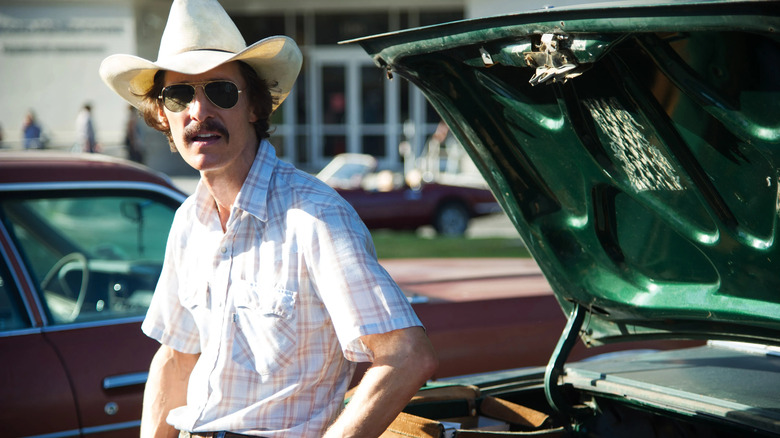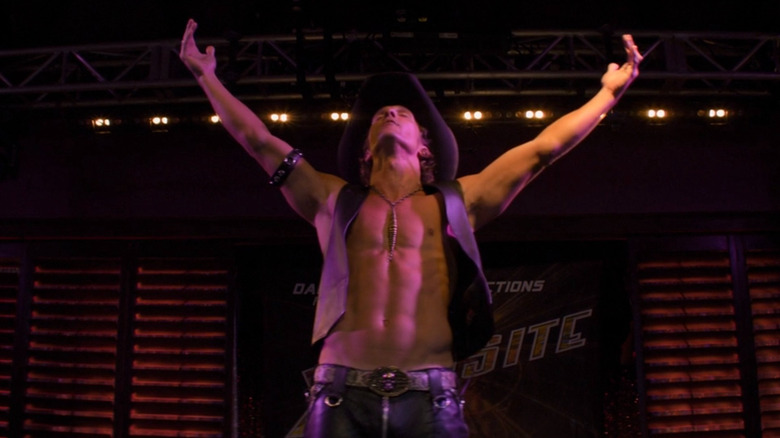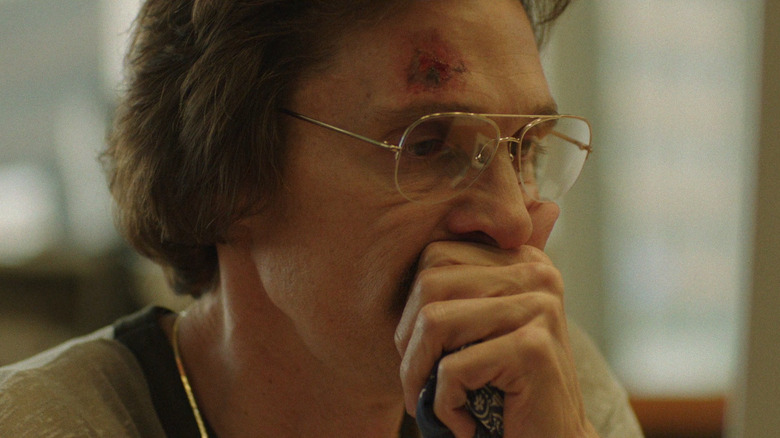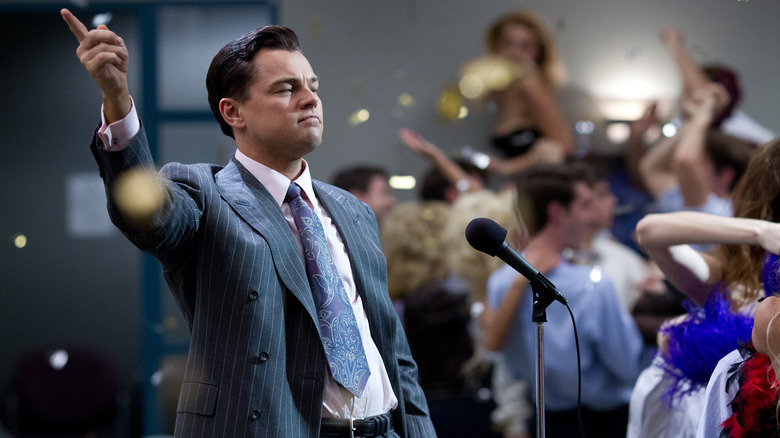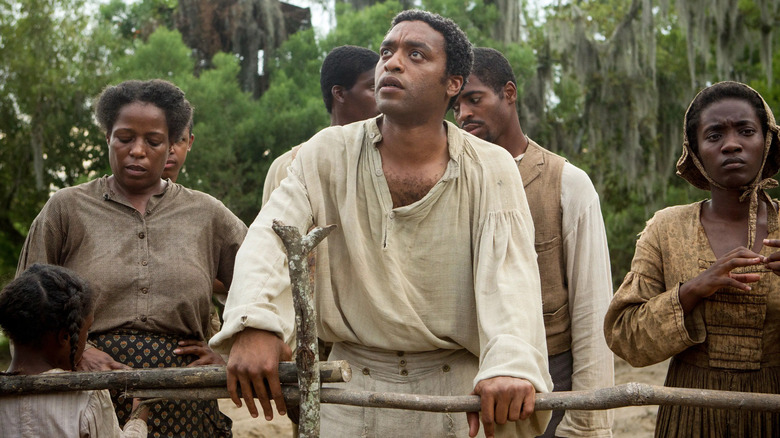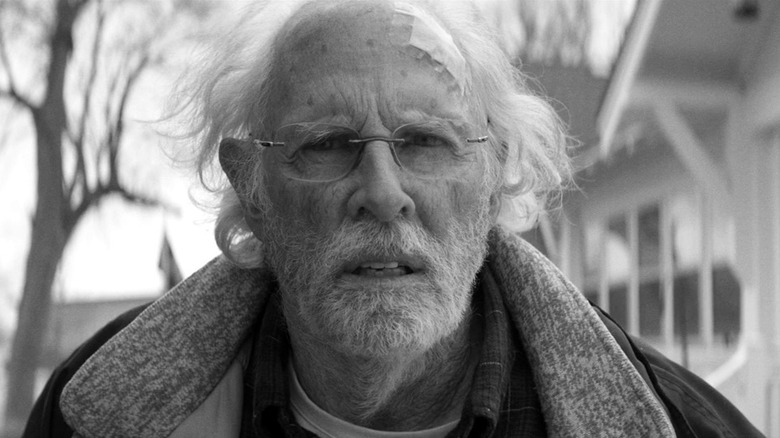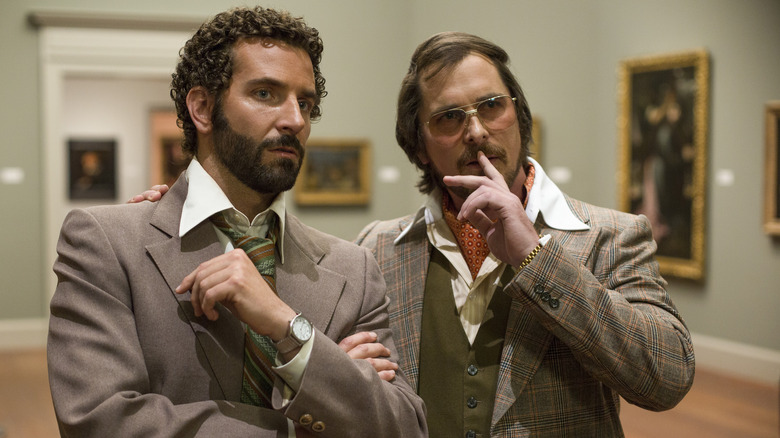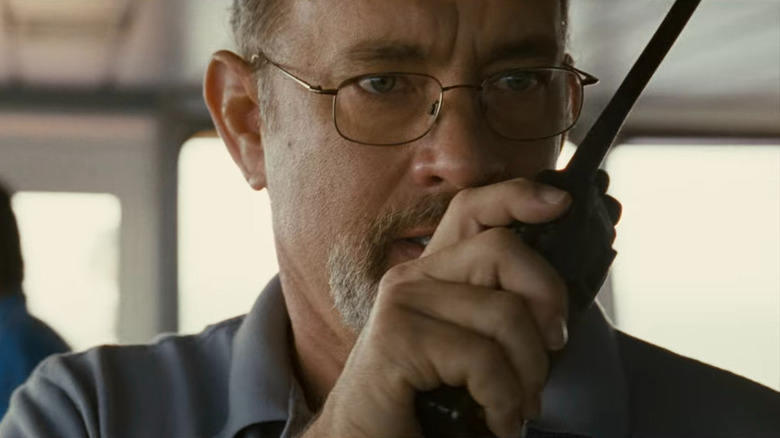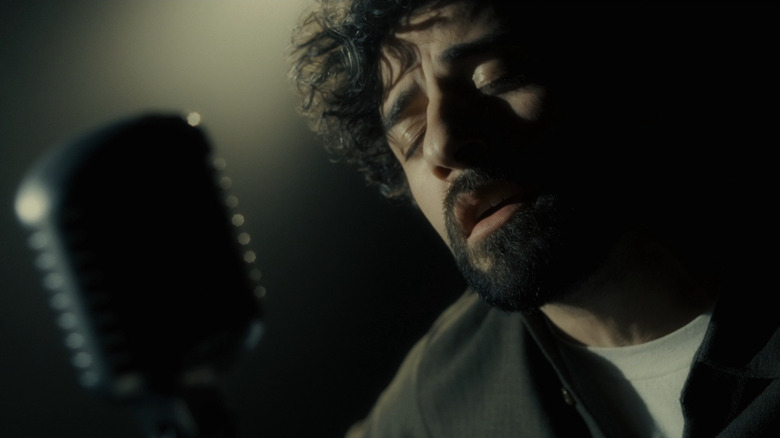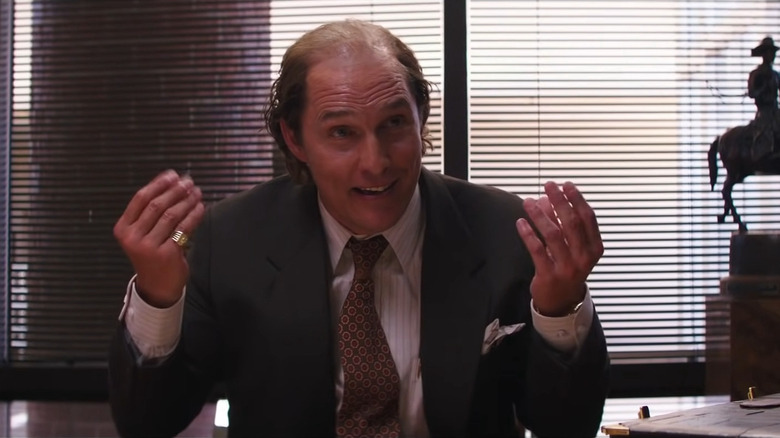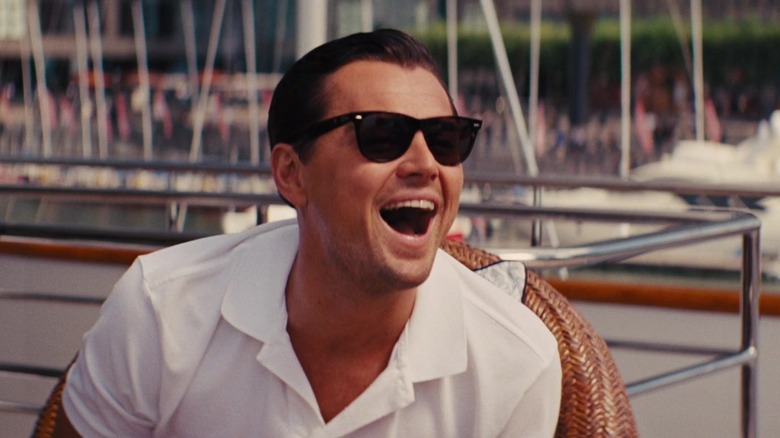Did The McConaissance Ruin The 2014 Best Actor Oscar Race? An Investigation
(Welcome to Did They Get It Right?, a series where we look at an Oscars category from yesteryear and examine whether the Academy's winner stands the test of time.)
We all have Oscar wins that we love, where the Academy decides to step out of line with convention and give it to someone doing truly exceptional work. Olivia Colman taking home Best Actress for "The Favourite" is a recent example I still cannot believe happened. We also have the awards we despise, where we cannot even fathom how the stars aligned to push something we consider to be truly terrible to the winners' circle, like "Crash" winning Best Picture.
Far more common are the awards given out where we understand how and why they won but vehemently disagree with the selection. Just from this past year, I'd put Brendan Fraser winning for "The Whale" and Jamie Lee Curtis winning for "Everything Everywhere All at Once" in this category. These winners are the result of people looking to honor a long career, crown a new movie star, or ride the wave of a popular movie. Another reason for these wins is a comeback narrative.
Particularly in the acting categories, the Academy responds greatly to those who reached a critical and commercial peak, faded, and returned with a major role that established them as serious actors once again. This was a huge reason Fraser won. Same for Renée Zellweger winning for "Judy." While I understand why these wins happen, they still bother me. One in particular that grinds my gears was Matthew McConaughey winning Best Actor for "Dallas Buyers Club" in 2014, capping off "The McConaissance" in the ultimate triumph, for a performance and film I feel are less than stellar in a year brimming with worthy winners.
Looking back at the McConaissance
The first 20 years of Matthew McConaughey's career were a mixed bag. Of course, he had his hilarious breakout role in "Dazed and Confused," and then he quickly became someone Hollywood looked to make a leading man. After all, he was charismatic and handsome. That's what they do. He would go on to star in mediocre action movies and successful, though critically disliked, romantic comedies.
Whenever he would be in a big movie by a major filmmaker, like Steven Spielberg or Robert Zemeckis, he was usually seen as the odd man out, not fitting in with the tone of the film or the rest of the cast. McConaughey became a punching bag of sorts, and by the time "Ghosts of Girlfriends Past" was released in 2009, it looked over.
Then 2011 comes along, and he stars in "The Lincoln Lawyer," which is a solid hit and a solid legal thriller, and he has a fun supporting role in the underrated "Bernie," reuniting him with Richard Linklater. "Killer Joe" premieres at the Venice and Toronto International Film Festivals and is met with a ton of controversy but a ton of admiration for McConaughey's wild performance in the title role.
2012 takes things to a whole other level. "Killer Joe" hits theaters, and that is followed up by really splashy titles from major filmmakers in "Magic Mike" and "The Paperboy." Plus, "Mud" premieres at Cannes. McConaughey was no longer the Hollywood pretty face in rom-coms. He was a serious, versatile character actor taking on challenging roles. "The McConaissance" was here.
Though his stock was rising exponentially, none of these roles are parts that traditionally get nominated for Oscars. The second he was in one of those, though, he was going to be seeing gold. Enter "Dallas Buyers Club."
Just the right time
Matthew McConaughey had so much heat coming into "Dallas Buyers Club," and the film falls into so many of the Academy's favorite things. It is a biopic featuring McConaughey playing AIDS patient Ron Woodruff. He underwent a massive physical transformation where he lost 47 pounds for the role. Plus, the film dealt with important social issues but did it in a way that framed it through the eyes of a more "palatable" protagonist for the more conservative members of the Academy, as this is a story about the HIV/AIDS crisis told through the eyes of a straight, white, cis man.
Don't get me wrong. I don't think McConaughey is bad in "Dallas Buyers Club." He's committed, but the role doesn't offer much for him to play, aside from placing someone mostly known for his charisma into a serious drama. Everything about McConaughey ultimately taking home the Oscar this year reeks of two things: the Academy patting itself on the back for recognizing a serious subject like AIDS and crowning the actor for a successful comeback.
Another major factor in this all that lined up perfectly for McConaughey is that during the voting period for that year's Oscars, the first season of "True Detective" was airing. The penultimate episode of the season even aired the same night as the awards. He was at the top of everyone's minds, cementing himself as a serious actor, and nobody could resist.
I have no qualms about Matthew McConaughey winning an Oscar as a concept. My issue comes from who he was up against that year, both in terms of his fellow nominees and those who didn't make the cut. 2013 gave us so many exemplary Best Actor contenders that would've made for a better, more impactful winner to look back on.
The case for Leonardo DiCaprio
In 2013, one of the preeminent Academy Awards-related questions was "When is Leonardo DiCaprio going to win his Oscar?" Having a consistent career of quality performances can be a double-edged sword when it comes to awards. You're always in the conversation, but there's a lack of urgency in actually giving you the award, as the thought "Well, they'll get it next time" will inevitably pop into many people's heads.
In the case of DiCaprio, his rise to critical acclaim happened so young, and as I've written about before, the Academy doesn't love giving awards to young people. He also reached a level of fame very few movie stars can even hope to achieve, and though it's unfair, respectability is hard to come by when you are plastered on the bedroom walls of every teen girl in America. If he was going to cross that threshold, he needed to prove himself in serious work, giving us the run of "The Aviator," "The Departed," "Blood Diamond," "Revolutionary Road," and "J. Edgar," all of which he either was or almost was nominated for.
Then DiCaprio shifted and started playing more colorful characters, like in "Django Unchained" and the film he was nominated against Matthew McConaughey, "The Wolf of Wall Street." Martin Scorsese's black comedy biopic epic showed us a side of DiCaprio we hadn't seen in a long time: he could be hysterically funny, and after years of him hunting for that Oscar, here was a performance so outrageous, vulgar, and disgusting that the Academy never would go for it had the names DiCaprio and Scorsese not been attached.
Giving him Best Actor for this would've been perfect for both the career achievement and the actual daring work, a rare confluence of events. Alas, it wasn't meant to be.
The case for Chiwetel Ejiofor
When awards season started, the actor I would have put my money down on to win Best Actor was Chiwetel Ejiofor for his performance as Solomon Northup in Steve McQueen's harrowing, exceptional film "12 Years a Slave." Ejiofor had been a phenomenal character actor for a long time prior to this film, but this was the first time he had ever been put in a position to receive the kind of widespread industry acclaim that he so deeply deserved.
"12 Years a Slave" was the second-most nominated film that year and ended up winning three of the nine awards it was up for, including Best Supporting Actress for Lupita Nyong'o and, of course, Best Picture. You would think winning the top prize would be a boost for Ejiofor in Best Actor, but actually, quite the opposite is true. In the 21st century, Best Picture and Best Actor have crossed over in just three instances: "Gladiator," "The King's Speech," and "The Artist." For Best Actress, it's just two.
The Academy loves to spread the wealth in the high profile categories. My theory for this when it comes to the lead acting categories is that a performance is more likely to stand out to a voter if the film around that central performance is less interesting, giving a false impression that the work being done is titanic. This is why mediocre biopics tend to foster acting that the Academy can quantify and recognize.
If a film is too good, the lead actor is just one of its ingredients. Even though "12 Years a Slave" rests so much on the shoulders of Chiwetel Ejiofor — especially his face — I believe he ultimately fell victim to this conundrum. At the time, though, he would've had my vote.
The case for Bruce Dern
We all know the Best Actor category is adverse to youth. The youngest person to ever take home that award is Adrien Brody for "The Pianist" at age 29 — not exactly a child. More surprising, though, is their unwillingness to award older actors as well. In the 95-year history of the Oscars, only two people have ever won Best Actor over the age of 65: Henry Fonda for "On Golden Pond" and Anthony Hopkins for "The Father."
We all know they love giving out legacy, career-achievement Oscars, but they tend to do this in Best Actor when they reach their middle-aged years before they graduate to being elder statesmen. Once they're firmly old, they're seen as being on the decline. Much like kids, elderly actors are used as appendages to the standard 35-45-year-old lead, which is why older actors have a better shot of legacy Oscars in Best Supporting Actor.
In concept, Bruce Dern was a prime candidate for a legacy Oscar. He'd been working in Hollywood since 1960 and was a go-to character actor for decades, earning an Oscar nomination for Best Supporting Actor in 1979 for "Coming Home." Being a character actor, he rarely received a meaty lead role to sink his teeth into, but Alexander Payne gave him that opportunity in his mid-70s with "Nebraska."
Dern had racked up nominations for his quiet, gruffly funny performance all season and managed to snag prizes from the Los Angeles Film Critics Association and National Board of Review. However, Payne's black-and-white, low-key road dramedy was always going to play better for critics than the industry. If Dern wants that legacy Oscar, he needs to play a coarse but kindly grandfather in a supporting role. That's what they go for.
The case for Christian Bale
The final Best Actor nominee in 2014 was Christian Bale for "American Hustle." Because the run burned out, I think people minimize what an absolute tear David O. Russell was on when it came to the Oscars. He started his big awards splash with "The Fighter," for which Bale and Melissa Leo won in the supporting races, with Leo beating co-star Amy Adams. Two years later, he came back with "Silver Linings Playbook," which was the first film since "Reds" in 1982 to get nominations in all four acting races, and Jennifer Lawrence took home Best Actress.
"American Hustle" came out the very next year, and he went back-to-back years getting people nominated in every acting category. None ended up winning, but there was a strong chance Lawrence was going to win Best Supporting Actress. His loose, slightly campy dramas were hitting such a sweet spot for the Academy. Even "Joy," a movie we've all memory-holed, got a Best Actress nomination for Lawrence.
David O. Russell is quite a divisive figure, due to the movies he makes and his on-set behavior. During those Oscar-dominating years, I tended to enjoy the work he was making, and for as messy as it is, that includes "American Hustle." In particular, I found Bale and Amy Adams to be quite electric in it. Would Bale have made my Best Actor ballot that year? No, but I don't have an issue with the performance.
A big show was made about the weight he gained for the role, but part of me admires that commitment for a role that is ultimately kind of silly and buffoonish rather than ultra-serious. He was never going to win, but I wonder if that would've been different had he not won three years earlier.
The major snub
A major reason for my disappointment with Matthew McConaughey winning the Oscar in 2014 doesn't just come from me thinking the people he beat in the category were better options. That year produced many performances that deserved to get nominated and perhaps even win themselves. The most shocking snub of the category was Tom Hanks for "Captain Phillips," arguably his best performance of the 21st century.
For someone who garnered so much Oscars success and won back-to-back Best Actor trophies for "Philadelphia" and "Forrest Gump," his standing with the Academy has significantly diminished since the turn of the century. He got a nomination for "Cast Away" and then didn't get another for 18 years until "A Beautiful Day in the Neighborhood."
In 2014, there was a strong possibility that Tom Hanks could end up getting two Oscar nominations, as his portrayal of Walt Disney in "Saving Mr. Banks" was also garnering a lot of attention. Sometimes having more than one celebrated performance in a year can be a tremendous boost to an actor. Just a couple of years ago, Scarlett Johansson wound up in lead and supporting for "Marriage Story" and "Jojo Rabbit," respectively. And in some cases, it has propelled the actor to a win, such as Jessica Lange taking home Best Supporting Actress for "Tootsie" the same year she was also nominated for "Frances."
Sometimes, though, it can be a hindrance — and in an effort to spread the wealth, nobody can agree on which performance to back. Instead of getting two nominations, Tom Hanks got zero that year, and in the case of "Captain Phillips," one of the Hollywood legend's greatest feats as a performer went completely unrecognized. When we look back at his entire career, Hanks not getting that nomination will look incredibly bizarre.
Who else was left out?
Someone who had a much less realistic shot of getting into the Best Actor field at the time was Oscar Isaac in Joel and Ethan Coen's "Inside Llewyn Davis." If I had my pick of anyone from this year to win Best Actor, it would've been him. For one, I consider "Inside Llewyn Davis" the best film of the entire 2010s, not just this year. And though I had seen Isaac in "Drive," "Robin Hood," and some other things, it was as if I was seeing someone I had never seen before immediately turn into a star in front of my eyes.
Every note he plays of the titular character's bitterness, jealousy, and soulfulness resonates with me so deeply, and that comes through in the film's quietest moments or when he's passionately performing these classic folk songs. "Inside Llewyn Davis" only received two Oscar nominations (a crime), and it should've been way more.
Some other big-name folks would've been right at home in the Best Actor field too. I consider Joaquin Phoenix's performance in Spike Jonze's "Her" to be some of the best of his career (though James Gray's "Two Lovers" is still number one), and considering it won Best Original Screenplay and Scarlett Johansson was heavily in the Best Supporting Actress conversation for a voice-only performance, that film clearly had its fans.
And then, the legacy Oscar campaign that weirdly never took off like I thought it would: Robert Redford as the sole actor in the survivalist drama "All Is Lost." You also had Michael B. Jordan for "Fruitvale Station," Miles Teller for "The Spectacular Now," Toni Cervillo for "The Great Beauty," or even Chadwick Boseman for "42," if you needed another middling biopic to choose from. Any of these would be more exciting.
Unable to capitalize on the McConaissance
The world's whirlwind love affair with Matthew McConaughey came on strong and fast, culminating in the Best Actor Oscar. Once you win that award, though, how people perceive you as an actor does shift dramatically. He was no longer an industry underdog catching a second wind. McConaughey had an Oscar in hand and the buzziest TV show of the year. Later that year, he'd be the lead in Christopher Nolan's latest blockbuster "Interstellar." He was now atop the mountain.
His choices after "Interstellar" to capitalize on the newfound serious actor phase of his career immediately took a sharp nose dive. Basically every single live-action film he did, starting in 2015 with Gus Van Sant's infamous "The Sea of Trees," was a colossal failure of a movie that had Oscars aspirations. "Free State of Jones," "Gold," and "White Boy Rick" all came out and fell flat on their faces.
When he tried more populist fare, they too were calamities, with "The Dark Tower" and the hilariously bizarre and misguided "Serenity." By the time "The Beach Bum" rolled around in 2019, which saw him going back into the sillier, marijuana-infused mode where he began his career, it couldn't even make back its tiny $5 million at the box office, despite being released on over 1,000 screens domestically. His one unqualified success was a voice role in the "Sing" movies, but he doesn't even sing in them, which is why those are popular.
The McConaissance was over, and his inability to take on another project that would live up to his winning Best Actor makes the collective McConaughey fever everyone became infected with for a couple of years all the more peculiar the further we get away from it. And I haven't even mentioned the Lincoln commercials.
If I picked the winner
As I mentioned, Oscar Isaac would be my Best Actor winner for "Inside Llewyn Davis" if I could pick any performance from a film released in 2013. However, I must stick to the parameters of the nominees given to me. Out of those five men, my winner would be Leonardo DiCaprio for "The Wolf of Wall Street," narrowly edging out Chiwetel Ejiofor.
This was the most vibrant and complicated work of DiCaprio's career at that point, playing a loathsome individual who destroyed so many people's lives. Yet for three hours, you cannot take your eyes off of him, which is exactly how the real guy was able to cause so much destruction. Plus, he's just flat-out hilarious. I'd give him the Oscar just for the scene where he is high as a kite on quaaludes, crawling down a set of steps to get into his car. It's some of the best physical comedy of the last 25 years, and the rest of the performance is just as captivating.
On a slightly more cynical note, DiCaprio winning for "The Wolf of Wall Street" would also probably mean that he wouldn't have then won a legacy Oscar two years later for "The Revenant," which is exactly the kind of try-hard acting that I wish the Academy would reward less of. And that would perhaps have opened up the door for Michael Fassbender to win that year for "Steve Jobs." I get to kill two birds with one stone with this selection: picking the best performance of the group and correcting a future Oscar slip-up.
Funnily enough, Matthew McConaughey is also in "The Wolf of Wall Street," and it speaks to the forgettable nature of "Dallas Buyers Club" that his brief appearance in Martin Scorsese's film completely overshadows that Oscar-winning performance today.
